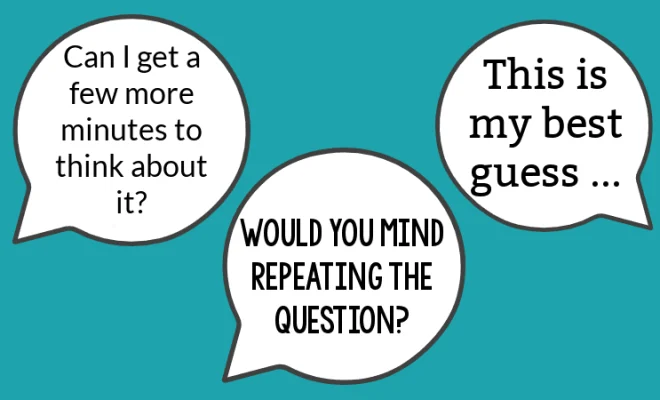8 Phrases to Teach Students Instead of “I Don’t Know

When it comes to classroom discussions, it’s common for students to respond with “I don’t know” when they don’t have an answer. While it may seem like an innocent response, constantly defaulting to this phrase can hinder students’ growth and confidence. As educators, it’s essential to encourage students to think critically and communicate effectively. Instead of allowing them to settle for “I don’t know,” we can teach them alternative phrases that promote curiosity, engagement, and problem-solving skills. Here are eight phrases to empower students in their learning journey:
1. “Let me think about it”:
By encouraging students to take a moment and reflect, they develop resilience and demonstrate a willingness to find the answers themselves. This phrase also fosters patience and perseverance.
2. “I’m not sure yet, but I’ll find out”:
Students acknowledging their uncertainty while showing a commitment to seeking information displays a growth mindset. It encourages independent research and nurtures a love for learning.
3. “Can you rephrase the question, please?”:
Sometimes, students may struggle to understand a question fully. Asking for clarification allows for a better grasp of the content and promotes effective communication.
4. “May I ask a friend for help?”:
Collaboration is a valuable skill in both academic and real-world settings. Encouraging students to seek support from their peers cultivates teamwork and strengthens their problem-solving abilities.
5.”I have a similar question”:
This response indicates that while the student may not know the answer to the specific question, they have related knowledge or a similar topic they can contribute to the discussion. It opens up opportunities for meaningful dialogue and the sharing of diverse perspectives.
6. “Can you give me a hint?”:
Asking for a hint demonstrates students’ effort to solve the problem independently but requesting guidance when needed. It encourages critical thinking and the development of problem-solving strategies.
7. “I need more context”:
Sometimes, students require additional information to formulate a well-informed response. Requesting more context shows their commitment to understanding the question fully before providing an answer.
8. “I haven’t had the chance to explore that yet”:
This phrase communicates that the student hasn’t encountered the topic in question but expresses an openness to learning more about it. It encourages curiosity and a growth mindset.
By teaching students these alternative phrases, we empower them to take ownership of their learning, practice effective communication, and build essential skills for their academic and personal success. Emphasizing the importance of curiosity, resilience, and problem-solving will help them go beyond “I don’t know” and unlock their potential.






